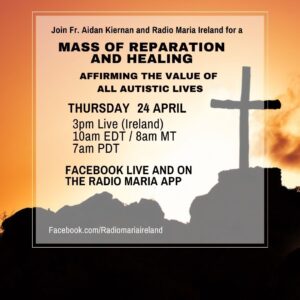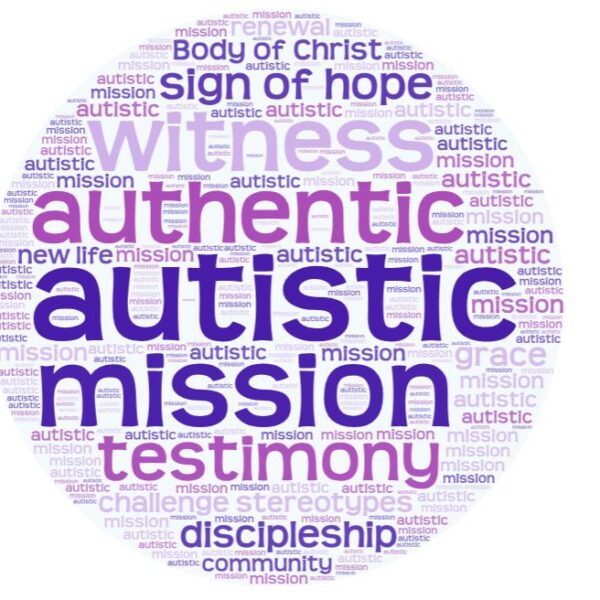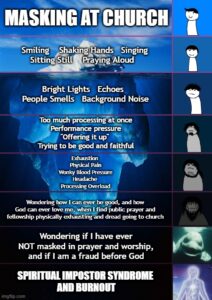Prayers of Reparation and Healing for Autistic People
As a follow-up to our last post, here is the list of Prayers of the Faithful as they were originally written. Feel free to pray them, and to download and print the PDF of these prayers for your own use.
Please note: These prayers were composed by actually autistic people. When we speak of “offering our autism,” we are speaking from the first-person. The phrasing of this petition and others may need to be modified accordingly when these prayers are offered by those who are neurotypical.
* * * * *
Prayers of Reparation and Healing for Autistic People
To affirm the value of all autistic lives of all ages and all support needs:
– When our autistic struggles are portrayed as burdensome and our lives deemed worthless by society, may we persevere in faith, not yielding to despair, but trusting that truth will triumph through the grace of God.
Lord, hear us!
– May we, as Church, have the courage to speak up and defend the humanity and dignity of autistic people – and to pray publicly for those who dehumanize and devalue autistic lives. Let us pray especially for the conversion of anyone who sees us as a burden on families and society. May our hearts be pierced with contrition for any time we have contributed to this attitude, in however small a gesture we may have made in viewing autistic needs as inconvenient – or worse.
Lord, hear us!
– May Church leaders actively speak out against dehumanizing autistic people… and may their actions and examples ensure this does not happen in our parishes. May our pastors and bishops lead the way for others to follow, and to make reparation for those who would have us eliminated.
Lord, hear us!
-As the Body of Christ, we must summon our leaders and laity alike to pray for autistic people now more than ever. For our part, we offer our own autism in witness to the dignity of all human lives.
Lord, hear us!
-May we, with renewed commitment, pursue accurate and current information about autism and autistic accommodations, with our focus on building a community that supports and champions autistic members of all ages.
Lord, hear us!
– May we call upon the patronage and intercession of Our Blessed Mother, Saint Thorlak, Sts.___________ , Saint Hannibal Maria Di Francia, and Luisa Piccarreta (Servant of God) to lead the Church in embracing and supporting neurodiversity among all members of the Body of Christ in your Holy Divine Will and on behalf of all souls past present and future.
Lord, hear us!
Download PDF Here












